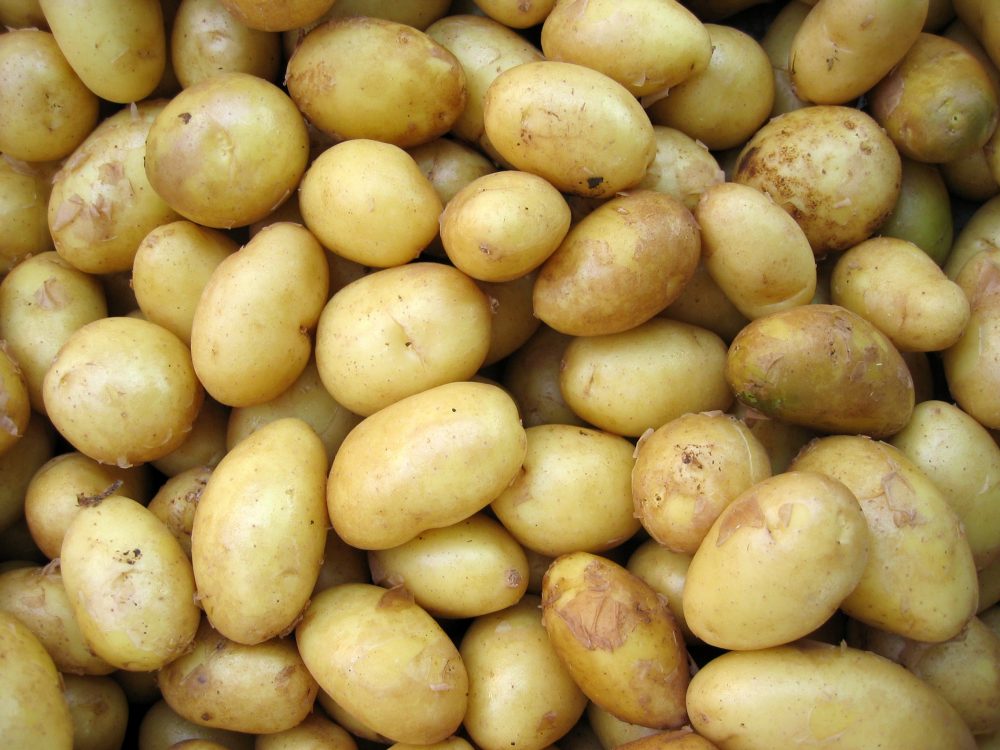What Nutrients Do You Get When You Eat a Potato?

While different types of potatoes have different nutritional profiles, they all share certain health benefits, including:
- Potatoes are high in antioxidants. Some potatoes have more antioxidants than others, but all potatoes contain carotenoids, a class of plant pigments that protect against chronic disease and inflammation.
- Potatoes may help with digestion. Potatoes contain resistant starch, a particular kind of starch that isn’t broken down by the small intestine. Instead, it reaches the large intestine and feeds your body’s beneficial bacteria. When resistant starch reaches the large intestine, your body’s beneficial bacteria turn it into short-chain fatty acids such as butyrate. A 2011 study published in the World Journal of Gastroenterology found that butyrate can help protect against colon cancer and reduce inflammation in the colon.
- Potatoes may aid bone health. The minerals iron, phosphorus, calcium, magnesium, and zinc in potatoes help the body build and maintain bone structure and strength. Keep in mind, however, that most of the minerals are in the potato skin and are lost if you peel them.
The russet is by far the most widely eaten potato in North America, and it’s definitely not the most nutritious spud out there. Even so, one medium, baked russet potato with its skin intact contains:
- Calories: 161
- Fat: 0.2 grams
- Protein: 4.3 grams
- Carbohydrates: 36.6 grams
- Fiber: 3.8 grams
- Vitamin C: 28% of RDI (recommended daily intake)
- Vitamin B6: 27% of RDI
- Potassium: 26% of RDI
- Manganese: 19% of RDI
- Magnesium: 12% of RDI
- Phosphorus: 12% of RDI
- Niacin: 12% of RDI
- Folate: 12% of RDI
( Excerpt from The Food Revolution Network)
